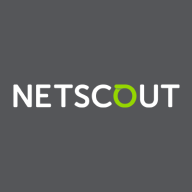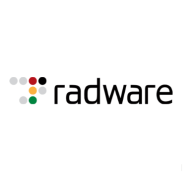


Find out what your peers are saying about Cloudflare, Radware, NETSCOUT and others in Distributed Denial-of-Service (DDoS) Protection.
WordPress security can be tricky, and that's where Cloudflare can be absolutely helpful for small businesses.
For the small project I was working on, using the basic tier provided a huge improvement at zero cost.
The hybrid approach optimized infrastructure costs and personnel resources.
The technical support team is very effective in resolving issues.
Although the team is good, they are not fast, and they lack the skills to manage dynamic attackers.
Support for Arbor DDoS deserves a rating of 10 because when there is a problem with implementation, the people I work with are the best.
This would help us address issues promptly, especially during unforeseen events like DDoS attacks.
Cloudflare does not offer hands-on technical support to fix customer problems but rather a self-service model.
The key factor is the language in which the support is offered, which, in this case, is in Thai.
Providing assistance almost instantly when needed.
Ensuring less than one second mitigation for L3/L4 and less than ten seconds for L7.
Before using Radware, I experienced some delays with another product, but with Radware, we have immediate connections with high-level technical support.
This would enhance the knowledge about scalability options available for Arbor DDoS, making it more accessible and useful for users.
They need to purchase boxes monthly to expand their bandwidths, and these new boxes can be added to the installed base very easily.
I find Arbor DDoS to be very scalable.
It is a SaaS tool, but the fact that they have workloads deployed across the world proves that it is a highly scalable tool.
The tool offers very good performance, even during high-traffic periods.
I rate the solution’s scalability an eight out of ten.
Scalability is well-supported by Radware.
It is scalable and user-friendly.
I would rate it a nine out of ten for scalability.
It is a very stable product.
Arbor DDoS is very stable.
For DDoS protection, I would not recommend Cloudflare.
I rate the solution’s stability an eight out of ten.
The service is very stable with no impacts during high-traffic periods.
In my opinion, there is no downtime experienced with Radware DDoS Protection Service due to external network redundancy.
I would like to see an option to decrypt the traffic with Arbor DDoS, as some clients are interested in this, particularly for application layer attacks on port 443.
Enhancing the handshakes between Arbor DDoS and third-party solutions is essential for obtaining better and real-time data that supports any organization’s support team effectively.
The licensing is subscription-based.
There's a need for improvement in areas like AI-based DDoS attacks and Layer 7 WAF features.
Despite these challenges, overall, Cloudflare remains the preferred solution compared to Azure, AWS CloudFront, and Google Cloud Armor.
Cloudflare should add more documentation and pricing to the cloud version.
There should be improved bot management integration that mitigates bot-based DDoS attacks completely.
I suggest improvements to the user interface to make it easier to use and to find the necessary data for analysis.
I think Radware DDoS Protection Service could be improved by enhancing the network analytics features.
The prices for Arbor DDoS are expensive.
For some customers, the cost is expensive, but for enterprises looking to protect their services, it is affordable.
That's where Cloudflare shines for smaller businesses – it's ten times cheaper than Akamai.
I find it to be cheap.
I think they should consider reevaluating the pricing for support, as it can be quite high.
Radware pricing is on the high end, suitable more for larger organizations.
I didn't check pricing of other providers in depth but verified with two, and found Radware to be significantly cheaper compared to F5.
We have a premium cost setup to align with a tier four uptime certified data center, storing and protecting critical infrastructure.
That is an attack over 10 gigabit per second, and if an attack enters the telecommunication network, that will be a disaster for their customer, their services, and so on.
The platform offers quick mitigation of attacks because Arbor DDoS uses BGP Flowspec, enabling very quick mitigation.
The most valuable feature was the ability to detect attacks within two seconds and gain visibility of all the traffic.
The most valuable features of the solution are performance and security.
Techniques like minification and image compression reduce the size of assets, leading to better performance and faster user load times.
The solution has been able to compare it to the market, and I think the product has taken great strides in automating quite a bit of things, and they use a lot of AI.
The support from Radware is also exceptional, as they are always willing to jump on a call to help solve issues and improve our network design.
The ERT feeds, which are based on Radware intelligence services, have been beneficial to my organization because they block a lot of malicious IP addresses and botnets.
The best feature of Radware DDoS Protection Service is the automation.



Arbor DDoS provides effective mitigation against DDoS attacks with a user-friendly interface, integrating cloud and on-premise solutions for real-time traffic control and reporting. It supports large traffic volumes without latency, making it ideal for protecting online infrastructure.
Known for its intuitive GUI and rapid response, Arbor DDoS defends against complex DDoS threats using AI-driven anomaly detection and traffic categorization. It offers packet capture, robust reporting, and deployment flexibility, helping users maintain network stability and performance. While improvements in auto-mitigation, interface modernization, and scalability are needed, its hybrid protection approach efficiently secures networks for service providers and enterprises.
What are the key features of Arbor DDoS?Internet Service Providers and managed service providers utilize Arbor DDoS to secure network infrastructure and service availability. It's implemented in government and finance sectors for safeguarding customer websites and managing server traffic thresholds. Organizations deploy Arbor DDoS both on-premise and via cloud for extensive network protection.
Cloudflare is a highly-regarded Content Delivery Network (CDN) and a Distributed Denial-of-Service (DDoS) protection solution. The robust global connectivity cloud platform that is Cloudflare ensures users are able to connect to the Internet quickly, securely, and reliably. Cloudflare is one of the world's largest networks in the marketplace today. Using Cloudflare, businesses, educational entities, NGOs, vloggers, bloggers, and anyone else with an internet presence can experience more secure, faster websites and applications.
Currently, there are millions of Internet locations on Cloudflare, and the Cloudflare network
continues to grow every day by the thousands. The solution is able to fulfill the requests for
millions of websites seamlessly and serves on average 45 million HTTP requests per second.
Cloudflare has safe, secure data centers in close to 300 cities worldwide to ensure every
client request is filled as quickly as possible. It is Cloudflare’s edge network that makes this
possible by keeping content and other services as close to each client as possible, so the
information requests are always only seconds away.
Many organizations that work in democracy, civil society, human rights, or the arts are able to
access Cloudflare's highest levels of protection for free via Project Galileo. Additionally, official
election websites can be secured from hacking and fraud through Cloudflare’s Project
Athenian, also at no additional cost.
Cloudflare can also help organizations of all sizes develop a robust zero-trust strategy to
ensure the highest levels of productivity and profitability. Employees, stakeholders, and end users have a greater level of satisfaction and overall improved user experience, which can, in
turn, result in higher revenues and overall ROI. Zero-trust and BYOD (bring your own device)
access ensure end users and employees always have the best resources and technology
available to them at all times.
Cloudflare benefits
Cloudflare has many benefits. Some of its most valuable benefits include:
- Faster load times
- Robust DNS security
- Intuitive cloud Web Application Firewall (WAF)
- Free universal SSL
- Image enhancement
- Automatic browser caching
- Next-generation cloud load balancer
- Accelerated Mobile Pages (AMP)
- Rate limiting
- Minification
- Zero-trust capabilities
- Cost-effective
- Reduced carbon footprint
Reviews from real users
“Many websites require an SSL certificate because they sell stuff and want SSL. Cloudflare
comes with an SSL certificate built in. It's automatic. You sign yourself up for Cloudflare, and
an SSL certificate automatically protects your website. If you have a connection between your
website and your host, the server, Cloudflare, and the host, you don't necessarily need a
certificate.” Spencer M., Owner at Tech Exchange
“What I like best about Cloudflare is that my company can use it to trace and manage
applications and monitor traffic. The solution tells you if there's a spike in traffic. Cloudflare
also sends you a link to check your equipment and deployment and track it through peering,
so it's a valuable tool.” Daniel P., Network Engineer at Ufinet
“The most valuable feature of Cloudflare is the GUI. You are able to control the solution very
well through the interface. There is a lot of functionality that is embedded in the service.” PeerSpot user, Competence Center Manager at a tech services company
Radware DDoS provides robust multi-layer protection against distributed denial of service attacks, featuring real-time monitoring and anomaly detection. Its scalable cloud-based and on-site deployment options ensure effective safeguarding of critical infrastructure.
Offering comprehensive defense, Radware DDoS includes features like data scrubbing, signature updates, and SSL-based mitigation. Integrated platforms and a user-friendly interface streamline its deployment. With advanced reporting, analytics, and behavioral analysis powered by machine learning, users experience fewer false positives. Despite these strengths, users highlight the need for improved scalability, seamless deployment, and enhanced machine learning capabilities. Better documentation, pricing, and customer service remain areas of improvement.
What features does Radware DDoS offer?In industries like banking, telecom, and government, organizations employ Radware DDoS to protect networks from DDoS attacks. It ensures server, web service, and mail security while enabling traffic monitoring and unauthorized access blocking. Its cloud-based options serve entities seeking infrastructure security and network traffic analysis.